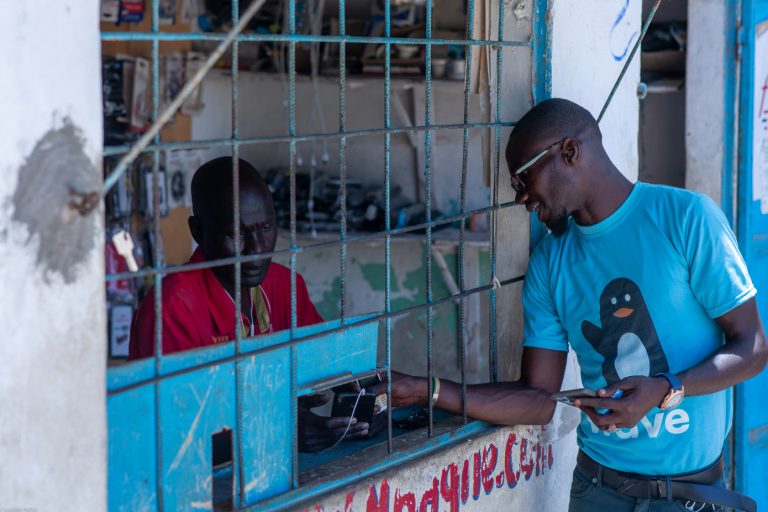
It is unbelievable: Senegal has created a fintech startup which has a higher valuation than Flutterwave (valued at $1 billion) or any financial institution in Nigeria except OPay. Yes, Wave, a U.S. and Senegal-based mobile money provider, has raised $200 million in a Series A round of funding, according to TechCrunch. This deal is the largest-ever Series A round in Francophone Africa, making Wave a unicorn at $1.7 billion.
GTBank* market cap today is N820 billion in the Nigerian Stock Exchange and if you use N500/$, this company has eclipsed it. Sure, China’s OPay but operating in Nigeria has a market value of $2 billion.
As this plays out, one may say that Paystack sold for cheap at $200 million, considering that its parent company, Stripe, joined Sequoia and Founders Fund to invest in Wave at this huge valuation.
Register for Tekedia Mini-MBA edition 19 (Feb 9 – May 2, 2026): big discounts for early bird.
Tekedia AI in Business Masterclass opens registrations.
Join Tekedia Capital Syndicate and co-invest in great global startups.
Register for Tekedia AI Lab: From Technical Design to Deployment (next edition begins Jan 24 2026).
Durbin tells TechCrunch that unlike M-Pesa, the mobile payment provider led by Safaricom, and other products of telecom operators like Orange and Tigo, Wave is building a mobile money service that is “radically affordable.”
The Dakar-based platform is akin to PayPal (with mobile money accounts, not bank accounts) and runs an agent network that uses their cash on hand to service Wave users. According to the company, users can make free deposits and withdrawals and charge a 1% fee whenever they send money.
Durbin says this is 70% cheaper than telecom-led mobile money and whenever there is a transfer problem, refunds are made instantly, unlike with incumbents where users might need to wait for some days.
Wave’s technology also differs from telecom-led mobile money. Whereas the incumbents mostly focus on USSD (although there are provisions to use applications), Wave is solely app-based. For users without a smartphone, Wave also provides a free QR-card to transact with an agent.
Comment on LinkedIn Feed
Comment: Honestly speaking if you’ve given Kenya’s MPESA a good look, you’ll definitely want to hop on the first good Mobile Money Fintech you can find.
Valuations are largely subjective, Mobile money startups have the tendency to attract more hefty valuations (think OPay and now Wave), primarily because they’re able to tap into Africa’s real value proposition and promote financial inclusion. There are more people in Africa that are off-grid than those who are on-grid.
Most Fintechs focus on on-grid customers who are relatively easier and cheaper to serve, off-grid Mobile money players have the capacity to command larger valuations because of who their target markets are – both on-grid and off-grid users.
It also seems like Wave knows what it is doing – product quality, user experience etc. At US$200 million, Wave’s Series A is larger than both Facebook and Google’s Series A combined (US$12.7 million + US$25 million).
The biggest companies in Africa (MTN, Multichoice, Airtel, Dangote) have one thing in common – they’re able to serve both off-grid and on-grid customers. The biggest Fintech and technology players in Africa will need to properly serve both on-grid and off-grid users to prosper.
My thoughts.
My Response: Good point but note that because MPESA worked in Kenya and Wave worked in Francophone does not mean the business model can work anywhere. MPESA failed in South Africa because there was no need for it. I think the lesson here is this: find a product fit for the right market. It goes beyond technology or just the category, you need to be in the right market. Wave has no chance in Nigeria because Nigeria’s banking sector is so good that its value proposition is marginal.
---
Connect via my
LinkedIn |
Facebook |
X |
TikTok |
Instagram |
YouTube




I think it’s a predictable trajectory, once you gain traction, you cannot accept any valuation less than the previous record. This is because, as interests and appetites in the financial tech space skyrocket, no fintech founder will give off 10% for any price, it has to be super enticing.
One or two might command a valuation of $5 billion by 2023, by then the clear leaders in the sector would be separated from the also rans, that’s the evolution I see here. By the time we have around $400 billion transacted via digital channels within Africa, then it won’t be out of place for some fintechs to command valuations of $50 billion, the space is still at infancy for now.
As for Paystack, some of us weren’t excited when the $200 million announcement came out back then, I questioned whether it could have remained Nigerian owned and hit a billion dollars. I have never been a fan of quick wins, I prefer things that are enduring and legendary. Money is just a tool, but legacy is eternal.
The floodgates have already opened, whether you build to sell, build to grow, or build to dominate, just keep working; there’s so much to be excited about.
I think it’s a predictable trajectory, once you gain traction, you cannot accept any valuation less than the previous record. – Superb.